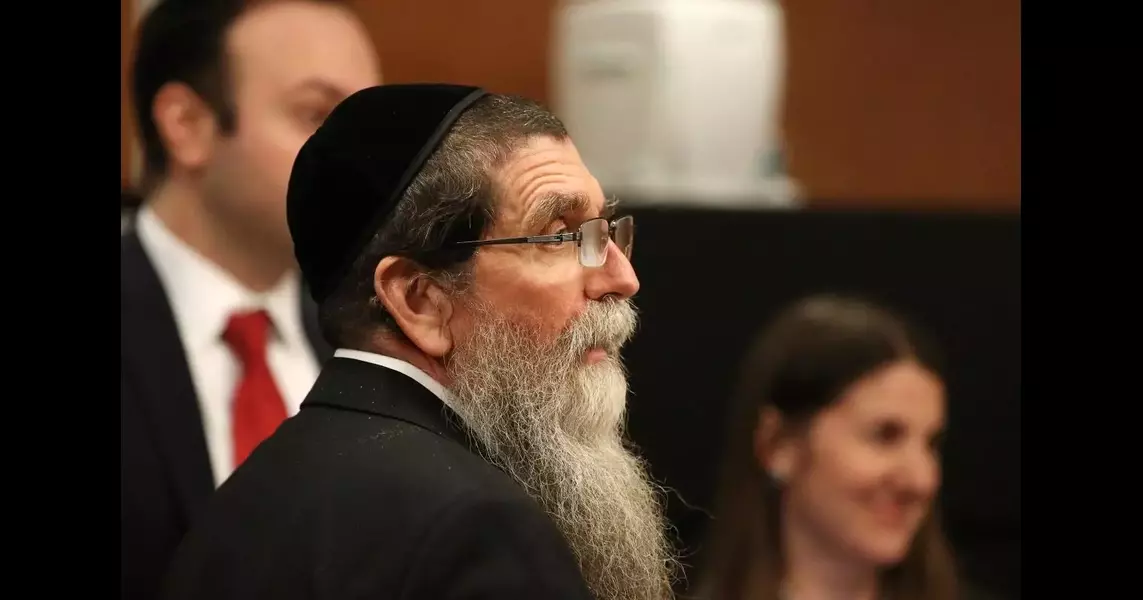Money laundering case against Lakewood’s Rabbi Osher Eisemann dismissed

Exoneration of Rabbi Eisemann: A Triumph of Justice
In a remarkable turn of events, a Superior Court judge in New Brunswick, New Jersey, has dismissed the money-laundering case against Rabbi Osher Eisemann, the founder of Lakewood's School for Children with Hidden Intelligence. This decision marks a significant victory for the rabbi, who has been embroiled in a legal battle for years, and a testament to the importance of due process and the rule of law.Uncovering the Truth: A Relentless Pursuit of Justice
The Dismissal of Charges
After the state rested its case, Judge Joseph Paone sided with Eisemann's defense team, ruling that the state failed to provide sufficient evidence to support the necessary elements of the money-laundering offense. This decision effectively exonerates the rabbi, bringing an end to a long and arduous legal battle.The defense attorney, Lee Vartan, expressed his relief and satisfaction with the outcome, stating, "It seven took years, but Rabbi Eisemann was fully and finally vindicated." Vartan's statement underscores the perseverance and determination of the legal team in their pursuit of justice for their client.
The Overreach of Prosecution
The dismissal of the case has also raised questions about the conduct of the state's Office of Public Integrity and Accountability (OPIA). Vartan's scathing criticism of the OPIA's "gross overreach" and the "meritless cases it regularly brings" suggests a troubling pattern of overzealous prosecution that may have contributed to the rabbi's ordeal.The Attorney General's Office, which prosecuted the case, expressed its disappointment with the court's decision, stating that it "prevented the jury from deciding this case, despite the extraordinary standard that applies to such motions." However, the judge's ruling indicates that the state's case lacked the necessary evidence to even warrant a jury trial.
The Pivotal Role of the Bookkeeper
A key development in the case was the emergence of the school's bookkeeper, Rochel Janowski, who came forward after Eisemann's first trial in 2019. Janowski claimed in a sworn certification that she had made the 0,000 entry in error in the school's QuickBooks ledger, which the state had used as the basis for its money-laundering allegations.This revelation, along with the judge's decision to grant Eisemann a new trial, highlights the importance of thorough investigation and the consideration of all relevant evidence. The state's failure to speak with Janowski prior to the initial trial suggests a concerning lack of due diligence, which may have contributed to the ultimate dismissal of the charges.
A Vindication of Innocence
The dismissal of the case against Rabbi Eisemann is a significant victory for the rabbi and his legal team. Eisemann's co-counsel, James Mahon, described the ruling as a "full exoneration" of the rabbi, who has dedicated his life to the protection and care of severely disabled children in the Lakewood community.Mahon's statement underscores the personal toll that this legal battle has taken on Eisemann, who has been "persecuted for years in this particular prosecution." The judge's decision to issue a directed verdict, rather than allowing the case to go to a jury, further reinforces the strength of Eisemann's defense and the lack of evidence against him.
Lessons Learned and the Path Forward
The dismissal of the case against Rabbi Eisemann serves as a cautionary tale for prosecutors and a reminder of the importance of thorough investigation, adherence to due process, and the presumption of innocence. The state's failure to consider all relevant evidence and its apparent overreach in this case have raised concerns about the integrity of the criminal justice system.As the Attorney General's Office continues its "important work" in tackling corruption and fraud, it must heed the lessons of this case and ensure that future prosecutions are built on a solid foundation of evidence and a genuine commitment to justice. Only then can the public's trust in the system be fully restored and the rights of the accused be truly protected.